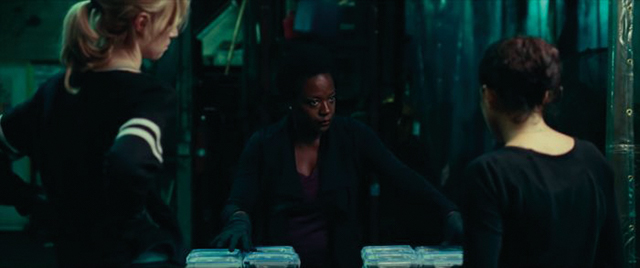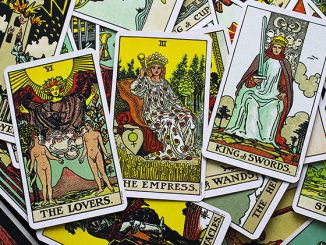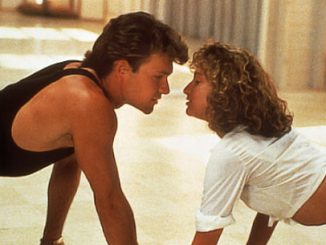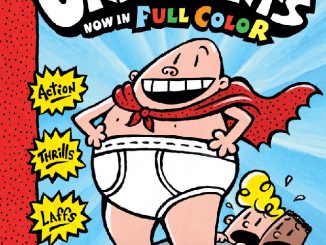
[dropcap]W[/dropcap]ith this remarkable heist drama, director Steve McQueen has transitioned from coordinator of superb performance showcases (Hunger, Shame) to mastermind of vivid historical epics (12 Years A Slave) to the talent behind this complex, unpredictable and stunningly well-realised genre film; the likes of which we rarely see done on a grand cinematic scale.
Based on a script by Gone Girl author Gillian Flynn, itself adapted from a mostly-forgotten British TV series, Viola Davis stars as the widow of an infamous criminal (Liam Neeson), left to clean up the pieces after his crew are killed during a robbery. She recruits the significant others of his accomplices — Michelle Rodriguez, Elizabeth Debicki, Cynthia Erivo — to assist her in fulfilling his final scheme, and they work to channel their grief into ingenious collaborative thievery.
The four lead actresses are impossible to fault: strong, sympathetic and dynamic in their command of the screen. That three of them are women of colour is significant: Widows and its Chicago southside setting are heavy with the disappointment of post-Obama poverty, unfulfilled promise for minority communities and the subsequent desperation of many to break out. McQueen’s film has a disruptive realism that highlights the shallow materialism of a film like last summer’s Ocean’s 8, where jewels and gowns were swiped for the sake of fun. The women of Widows have no choice.
Approaching the widows with their criminal ultimatum is the duo of Bryan Tyree Henry (Atlanta) and Daniel Kaluuya (Get Out), two of the most urgently in-demand actors of the moment. McQueen makes great use of their electric talents; in one scene his camera spins around Kaluuya staring into the eyes of a young rapper mid-performance before a gun is pulled from nowhere. This particular duo of director and actor is so strong, one imagines they’ll be collaborating on several further occasions.
Tyree Henry’s character is running for local ward against nepotistic incumbent Colin Farrell, the son of racist local stalwart Robert Duvall. The legendary Duvall has less than 10 minutes of screentime, but they are unforgettable: he’s finally giving the performance David Dobkin tried to coax out of him in 2014’s The Judge. He and Farrell spew and bark at one another and firmly assert what underrated performers they are.
Gillian Flynn’s script builds to simultaneous criminal, political and personal crescendos with nary a second spared to take a breath. There’s a fluid incorporation of colour-blind and gender-blind casting and plotting; Viola Davis has commented publicly on the rarity of an interracial couple like herself and Neeson being represented in a Hollywood film.
McQueen has a naturalism to his storytelling that facilitates the diverse goals he’s achieving. Police brutality and government corruption provide the backdrop to the drama, but it’s fundamentally an entertaining, fast-paced mainstream movie about a team of very cool women stealing a lot of money.
What makes Widows a special film is that is has no interest in simply being a token female-led heist movie. It’s a Michael Mann-inspired political thriller with its gaze on the darkest side of modern Chicago and its soul ripped from the best 80s and 90s crime cinema, with relentless overtones of female empowerment. It’s an incredibly rewarding watch.
Lucien Waugh Daly
Image Credit: IMDB



